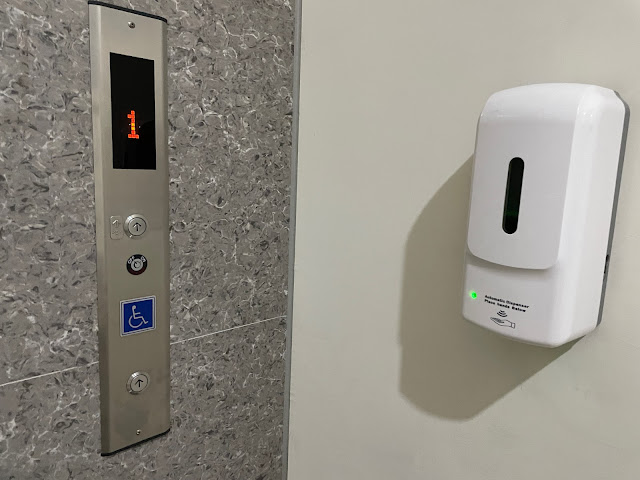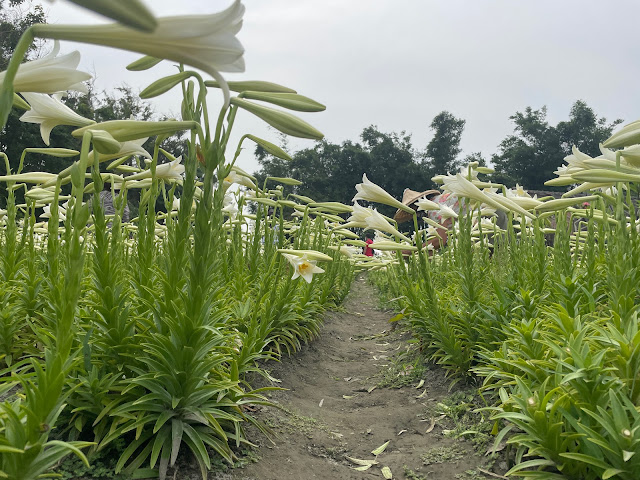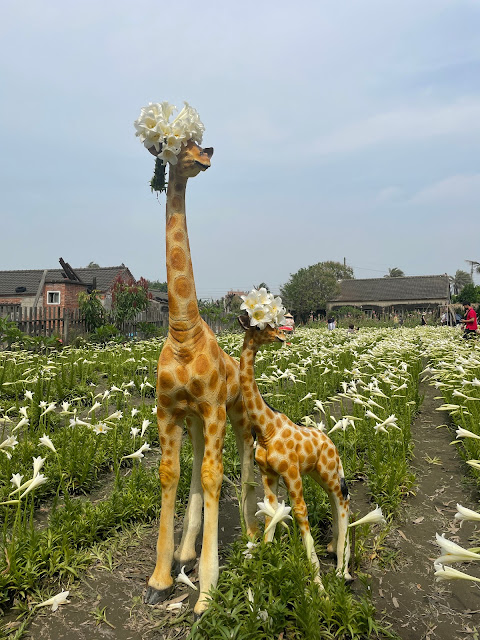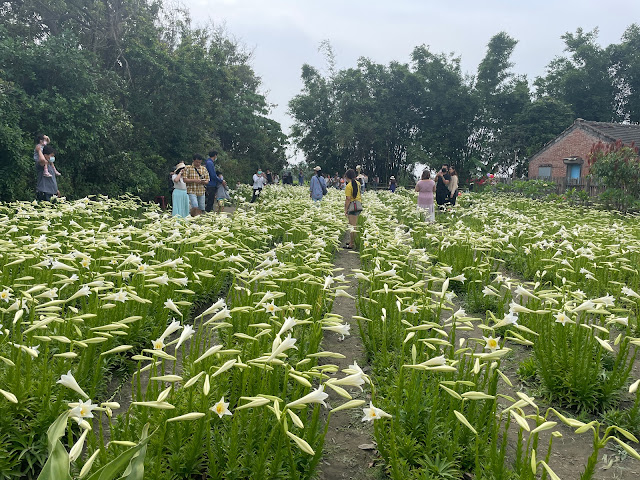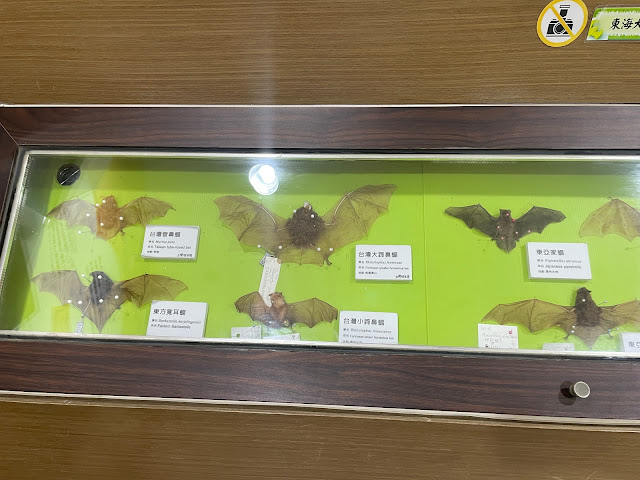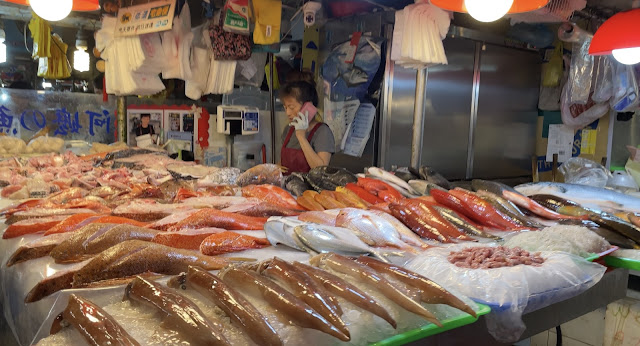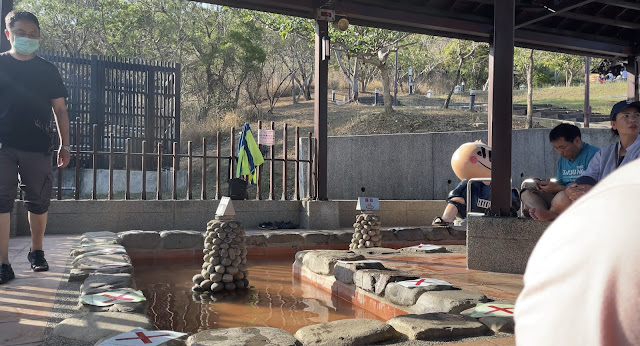Time has flown by so quickly, and it's been a while since I shared anything about my life, except for some travel experiences. This year has been quite crazy. The first few months were relatively peaceful, but in March, we had an interview about selling cakes and life in Taiwan as foreigners. Initially, I thought it was for the Immigration Office, but it ended up being posted on 21 major news websites and even appeared in a printed newspaper. After that, we became quite busy with cake-making.
In April, we had interviews with two radio stations, one in Chinese and one in English. Speaking on air was very stressful for me, and I worried that I sounded foolish. I felt down for a few days after the interviews. One interview was conducted in person with two hosts and five students present. They asked about how we met and some things about Poland. They even ordered a cake to taste and describe on air. My husband translated for me since it was in Chinese. Surprisingly, this interview was not as stressful as the other one. The second interview was for ICRT station and was conducted over the phone. We recorded the conversation for four weeks, and it was supposed to be broadcasted every Sunday in April. I never actually listened to it, but someone recognized me and messaged my husband to confirm. There were also requests for me to appear on two TV shows, one in Chinese and one in English, but I had to decline. It would have been a huge challenge, not only because my Chinese is not fluent, but also because I easily get stressed and don't know what to say. I always worry that I will say something foolish or be laughed at, perhaps due to my experiences in school as a child. Overthinking everything often prevents me from taking action.
Recently, the government expressed interest in featuring more articles about us in their magazine. They wanted some pictures, particularly one with me and a landmark. However, I don't usually take selfies, so it has become a small problem. Traveling now is not easy, and taking off masks in public to take pictures is not possible.
The apartment we rented in Shanhua doesn't come with a parking space, which is quite inconvenient. Fortunately, when we moved here two years ago, we were lucky enough to find a place to rent. However, in February, the person we rented the parking space from decided to move out and wanted to rent his apartment along with the parking space. He tried to tell us that we could no longer park there, but we had signed a contract and paid for it until the end of May, so he couldn't do anything about it. At that time, we also asked another neighbor if we could park in his space since he didn't own a car. We considered moving out and finding a rental or maybe even buying an apartment in the city. Unfortunately, there aren't many housing options available, and those that are tend to be expensive and unattractive. The neighbor agreed to let us use his parking space (without charging us), but if he ever needed it when someone visited, we would have to park outside. However, just two days after we started parking in his spot, he asked us to find another place to park because his parents didn't think it was appropriate for him to lend his space to us. It's frustrating now because we paid for the rental apartment for the next year, assuming we could park there. Finding another place to park is challenging since there aren't many rental spaces available. We drove around town and asked people, and there was only one place we would consider because they rent spaces on a monthly basis rather than daily. Many people park their cars along the roads, sometimes far away from where they live. On the same day, the neighbor apologized and asked if we could pay to use his parking space on weekdays. Well, it's better than nothing. Taiwanese people's behavior can sometimes be strange, especially when they care so much about what their parents think and follow their opinions.
Moreover, Taiwan has been facing a severe drought, the worst in 60 years. Water reservoirs are nearly empty, and there is hardly any rain. I think I have only seen rain once in Tainan this year. Lately, there have also been issues with electricity outages. Fortunately, it hasn't affected us, but some people have experienced power outages twice in one week for several hours. It's particularly challenging considering the current temperature is around 36 degrees Celsius. Without air conditioning, it can be tough. However, I feel like I have become more tolerant of the heat each year. Currently, I don't use the air conditioning during the daytime, but I can't imagine trying to sleep with a temperature of 35 degrees at home.
In the middle of May, COVID-19 cases suddenly spiked. It mainly affected Taipei and New Taipei, but life in Tainan was also impacted. During the second week of May (May 10th-14th), my husband attended a course in Taipei, fortunately avoiding the most affected area, Wanhua District. However, by the time he returned home, COVID-19 cases were on the rise there as well. It was then known that he couldn't go back to the office to work. Most people started working from home anyway, which meant I couldn't continue making cakes. I feel stuck with our child all the time, always needing to keep him quiet while my husband works. In the first week, we still went outside, but later on, we stayed in our apartment all day. Unfortunately, some people still weren't wearing masks in the park.
Speaking of being outside, our local park was undergoing renovation. However, soon after it was completed, it had to be closed due to COVID-19. So, for the past two to three months, we haven't had many places to play outside. Now the park is covered with tape, making it look more like a crime scene than an actual playground. Additionally, everyone is required to wear masks, even outdoors (although many people still don't wear them). It's quite challenging to bear the heat with our faces covered, but that's the reality now. I am aware that many countries have faced even worse situations, so I'm not complaining. I still feel fortunate to live in Taiwan, as it is much safer than other countries. We had 200-300 cases per day, prompting people to wear masks and stay home more. In contrast, Poland had 3000 cases a day and they started to open restaurants and resume other activities.
Most of the night markets and other types of markets have closed. Some that remain open, like in our town, only provide take-away services. The same applies to restaurants, where dining in is currently forbidden unless the space is large enough for people to maintain social distancing. Recently, we have been doing more food shopping to minimize the need to go out frequently. Before entering shops, we are required to register our name, phone number, and date. Some shops use QR codes, allowing us to fill in the information on their website instead of using paper. Additionally, there is now an option to scan a QR code, which will send an SMS (free of charge) for registration. Some shops are also conducting temperature screenings.
It's amusing to see how many people are buying toilet paper and instant noodles. I didn't expect people to panic to this extent again, but the shelves have been nearly empty. Instant noodles, canned goods, rice, milk, eggs, toilet paper, alcohol, and cleaning detergents are selling out quickly these days.















